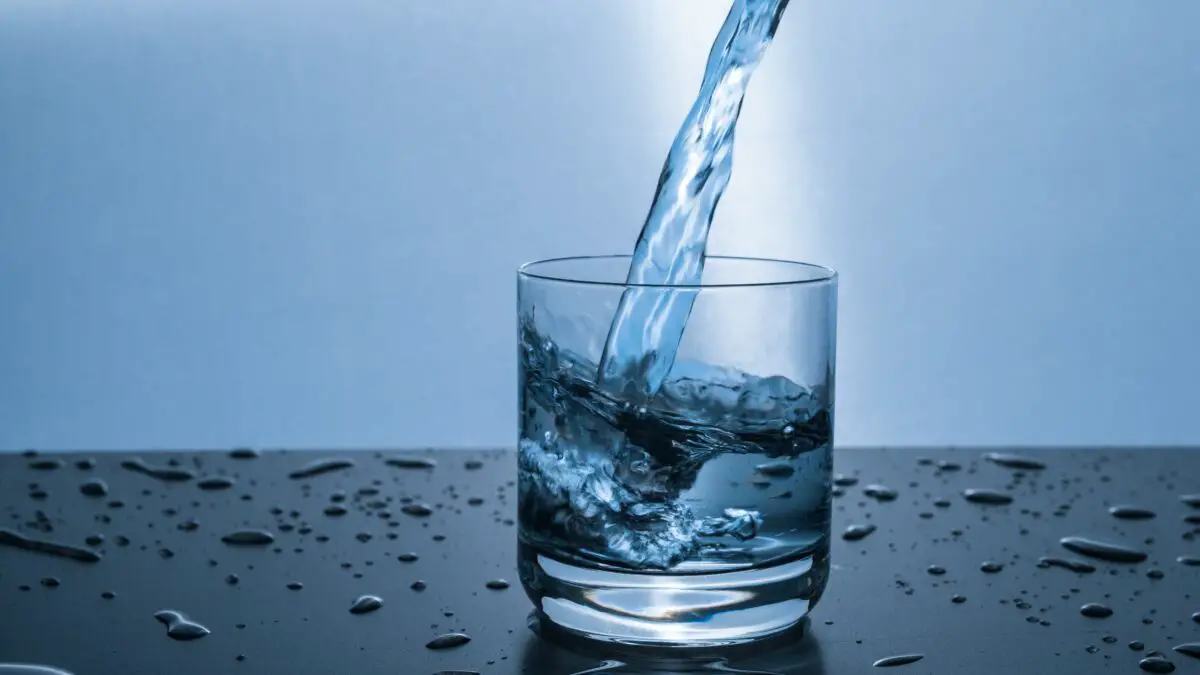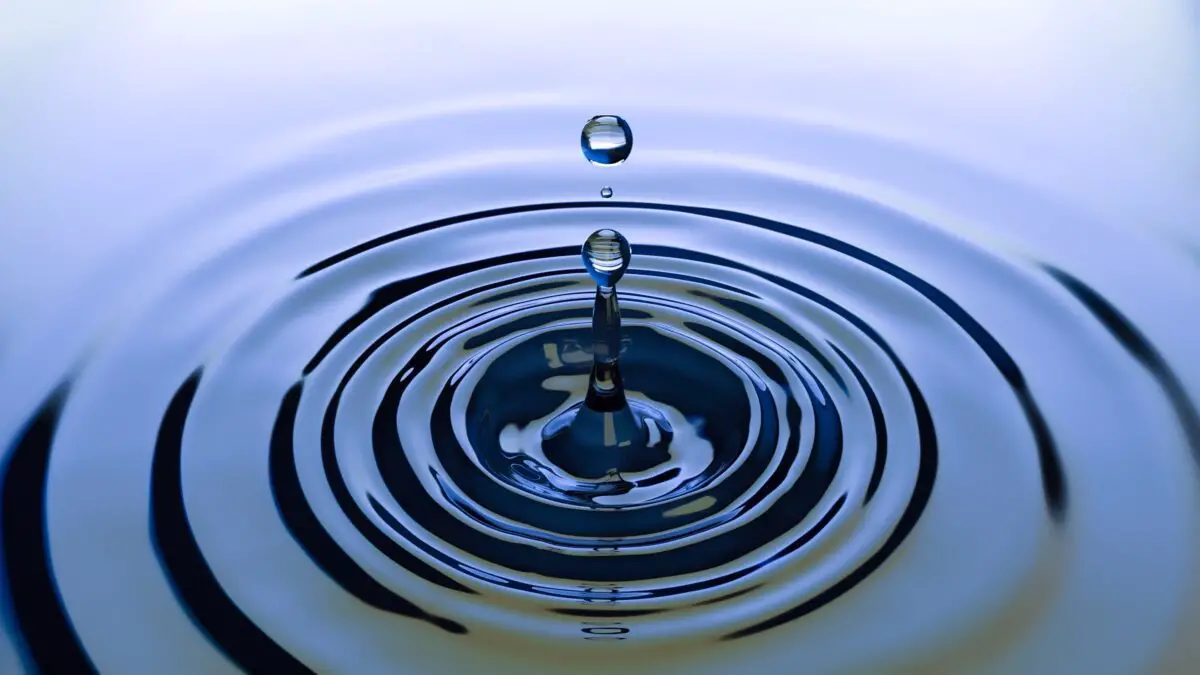“Water water everywhere, not a drop to drink” is an excerpt from The Rime of the Ancient Mariner (1934). It just goes to show how water inspires creative writing. Here, you’ll see how water features in some of the best-known English idioms too. This list of water idioms ranges from hot water expressions to ways of describing the weather.
We’ve covered popular phrases like water under the bridge and in hot water, as well as plenty of lesser-known idioms to help expand your vocabulary. All feature full definitions and example sentences.
So, get your umbrella ready, and let’s get started.

Water idioms
Keep your head above water
Normally you would use this phrase in relation to money, but it could relate to any period of difficulty or hardship. To keep your head above water means you are only just surviving a situation, for example having money problems.
“We struggling at the moment to keep our head above the water.”
We have more idioms to describe finances – whether good or bad – in a separate article.
Come in, the water’s fine
When you’re swimming and invite your friends to come on in, the water’s fine, you’re simply inviting them to swim with you. As a water idiom, though, it’s a way of welcoming someone to a situation or place where they may feel shy or uncomfortable.
“I’m so glad you came to my party. Come in, the water’s fine. I’ll introduce you to some new people.”
Blood is thicker than water
If you understand proverbs vs idioms, you’ll know that this popular saying is actually more of a proverb. Blood is thicker than water highlights the idea that loyalty and family bonds are the strongest and should be prioritized over any other relationships.
“When you’re making this decision, just remember that blood is thicker than water.”
This saying is one of many family idioms you may hear.
A tall glass of water
A tall glass of water sounds like a strange thing to end up on a list of water idioms. Of course, it can literally refer to water in a glass. As an idiom, though, it’s used to call someone attractive and irresistible; normally a good-looking, slender, tall person.
“That man is like a tall glass of water.”
Come hell or high water
If you want to really exaggerate the fact that nothing will stop you, no matter what difficulties may potentially stand in your way, you can say that you will do or achieve that thing come hell or high water.
“Mum said that come hell or high water, she’ll make it to the wedding.”
Discover some more idioms about bad things happening and how to overcome them.
Hold water
Be careful with this water idiom, because it can mean to stop yourself from urinating!
“We’re five minutes away from the next rest stop. You’ll have to hold water until then.”
However, to hold water more commonly means to stand up to scrutiny or appear to be true and verifiable. This phrase is used to describe stories, arguments, reasoning, and legal cases, and it’s most often used in negative constructions.
“I don’t think the lawyer’s case holds much water.”
“Let’s check to see if this argument holds water.”
“What you’re saying just doesn’t hold water to me.”
If you can imagine a bucket or other container full of holes, leaking water everywhere, you might be able to better understand the meaning of something holding water (or not!).
Dead in the water
A ship can physically be dead in the water, meaning it is unable to move anywhere, but this expression can also be applied to a situation. It could be anything that has stalled and isn’t moving forward.
“I think the company’s new relocation plan is dead in the water.”
Don’t throw the baby out with the bathwater
This may be one of the most confusing water idioms there is. It should go without saying that you don’t throw the baby out with the bathwater! What it actually means is that you shouldn’t get rid of something of value when disposing of other items that are not wanted.
“Ok, so you burnt some of the dinner, but let’s not throw the baby out with the bathwater. We can save some of it.”
Finding out where these sayings come from is half the fun.
Feel like a fish out of water
A fish in water is at ease. It’s in a completely suitable environment and situation. Now imagine how that fish would feel if removed from water… and that is where this saying comes from.
To feel (or look) like a fish out of water is to feel awkward, panicked or uneasy due to being in an unsuitable or unfamiliar situation.
“Honestly, this new system makes me feel like a fish out of water.”
“Jason looked like a fish out of water at that party last night.”
We have a lot of fishing idioms in English, and many of them are light-hearted and fun to use.
In deep water
If you can’t swim and find yourself in deep water, you’re in trouble. As a figurative expression, this is just a way of describing being in trouble or an awkward situation.
“They are going to be in deep water when their teacher finds out the truth.”
Although this is a saying in its own right, you’ll more likely hear the next phrase – to be in hot water – meaning almost the same thing.
In hot water
There are not many hot water idioms, but this one is used a lot in English. Unfortunately, to be in hot water is not a good thing. It means that you are going to get into – or perhaps already are in – a situation involving trouble, difficulty, or disgrace.
“I think she’s going to get in hot water over this.”
Like water off a duck’s back
Ducks love the rain, so no wonder this is a popular wet idiom. A duck’s feathers are naturally water-resistant thanks to the oil that coats them. So, when they get wet, the water just rolls down the feathers and off the duck’s back.
Now, imagine yourself behaving in this way when you hear a hurtful remark or criticism. You can either choose to take it to heart and let it upset you, or you can choose to ignore it and not let it affect you, just like water off a duck’s back.
“Honestly, I’m not bothered about what was said yesterday. It’s just water off a duck’s back to me.”
It’s surprising how many bird idioms there are in English, inspired by our feathered friends.
Like a duck to water
Yet another duck is featured in our list of water idioms! This time, it’s describing how effortlessly you pick up a new activity – just like a duck swimming in water. We can use the expression like a duck to water alone, or use the longer version: take to (an activity) like a duck to water.
“He did so well at his first dance lesson. Like a duck to water.”
“Eliza took to basketball like a duck to water.”
Another duck-related idiom you may hear is ‘nice weather for ducks’. You can check our list of rain idioms to find out what this means.
Spend money like water
This informal simile is talking about people who spend a lot of money without worrying about it. They don’t spend it wisely, maybe acting like it has no real value to them, which is why we say they spend their money like water.
“Your spening is out of control. You spend money like water.”
A drop in the bucket
When you want to say that a single action will have little effect on the wider situation, you can describe it as a drop in the bucket. As you can imagine, a single drop of water doesn’t make much difference when you’re trying to fill a bucket.
“I made a donation to the emergency appeal but it feels like a drop in the bucket.”
You can also turn this into an ocean idiom by saying a drop in the ocean.
Still waters run deep
This interesting phrase, still waters run deep, is used to describe a person who is quiet or shy. Perhaps you know little about them and they are hard to get to know, but they surprise you by having some deep feelings, high intelligence or interesting things to say when they do talk.
“I really enjoyed chatting with Mia yesterday. Talk about still waters running deep.”
Test the water(s)
It would be good practice to test the water before making a big personal or business decision. This just means that you get a measure of the situation, or gauge people’s feelings and opinions, before taking further steps.
“Let’s just test the waters and see what the team think.”
A similar saying is to dip your toe in the water. This time it’s you getting an idea of whether you like something by trying it a little before committing (as opposed to you finding out someone else’s thoughts when testing the water.)
Blow something/someone out of the water
Sometimes these water idioms can really be used to exaggerate a point. Instead of saying you beat someone or achieved a goal, say that you blew them/it out of the water.
“Come on guys, let’s blow these sales targets out of the water.”
“Great work, team! We blew those guys out of the water.”
Be like oil and water
These two substances don’t naturally mix. So when you say that two people are like oil and water, you are saying they don’t get along well or are very different from each other.
“I can’t believe they are siblings. They are like oil and water.”
A similar expression is like chalk and cheese – another useful idiom about relationships.
Muddy the waters
There may be plenty of hot water idioms and wet idioms, but this one is about making something unclear like muddy water. If someone is said to muddy the waters, they are making a situation harder to understand or complicating it for no good reason.
“Don’t muddy the waters; you aren’t helping the situation.”
A variation of this would be to say that something is as clear as mud, meaning that it is not at all clear to you.
Troubled waters
Another water idiom with a negative meaning; troubled waters refers to a chaotic state of affairs or difficult times.
“The company is really in troubled waters at the moment.”
“I think Julie and Ollie are in troubled waters with their relationship.”
Uncharted waters
This is another expression that has both a literal and figurative meaning. A ship is said to be in uncharted waters when it is in an area that has never been mapped before.
Figuratively, this applies when you are facing uncertainty in an unfamiliar situation or place.
“Right guys, this has never happened before so we’re in uncharted waters, but I’m sure we can work it out.”
Another term similar to this would be unfamiliar waters. Find some similar phrases in our list of adventure idioms.
Water something down
When you water something down, you make it weaker or lesser in comparison to its original self.
“I think the movie is a watered-down version of the book.”
“I know you’re passionate about this, but try to water your email down a bit so it doesn’t cause offence.”
This expression can also apply literally to diluting a drink or other solution by adding water.
Water under the bridge
This is perhaps one of the best-known water-related sayings in English; you may have heard it used in songs and in everyday conversation. It’s a great idiom to talk about the past.
If something negative happened some time ago but you have moved on and no longer regard it as a problem, you can say it is water under the bridge. This usually applies to something that happened between two people that caused tension or bad feelings for a while, but now all is forgiven.
“There’s no need to mention it again. Honestly, it’s water under the bridge.”
You can lead a horse to water but you can’t make it drink
Although it’s on our list of water idioms, this phrase is more of a proverb. It’s still in everyday use, but you may hear an amended version such as ‘You know what they say about a horse and water!’
The full version, you can lead a horse to water but you can’t make it drink, illustrates that you can give someone an opportunity or something beneficial to their life, but you can’t force them to accept it.
“I told James about the new job openings and even printed out his resume, but he still hasn’t applied. I guess you can lead a horse to water…”

Water idioms
Wet behind the ears
Here are a few fun wet idioms. To be wet behind the ears means you are naive, new to a job, inexperienced, or perhaps even young and immature.
“Don’t mind the new secretary. He’s a bit wet behind the ears, but he’ll soon learn.”
Wet Blanket
When it’s time for a party, don’t be a wet blanket. That’s the person who is boring or miserable. They bring down the fun mood of the party and reduce everyone else’s enjoyment.
“Please don’t invite Margo. She’s a real wet blanket.”
To make sure you get an invite to the next social gathering, check out these party idioms.
Wet your whistle
Perhaps one of the stranger wet idioms, to wet your whistle is to have an alcoholic drink or quench your thirst.
“Come on, wet your whistle.”
A similar phrase is to whet your appetite, which is to sharpen your appetite. ‘Sharpen’ in this case means to encourage or incite. And yes, the spelling is ‘whet’ and not ‘wet’, as it is from a Germanic word meaning to sharpen, as you would when you whet a knife.
Think about it this way: wet food would not be appetizing!
Wet through
When you are wet through you are extremely wet, usually from a downpour of rain (find more ways to describe rain here). Use this expression when all your clothes are wet, right down to your skin, shoes, and even socks!
“We got caught in the rain and came home wet through.”
If you have enjoyed these water idioms, why not take a look at some idioms about nature next?
We hope this article has given you some inspiration and helped you understand how to use these phrases. Which one is your favorite? Leave a comment and feel free to ask any questions.



